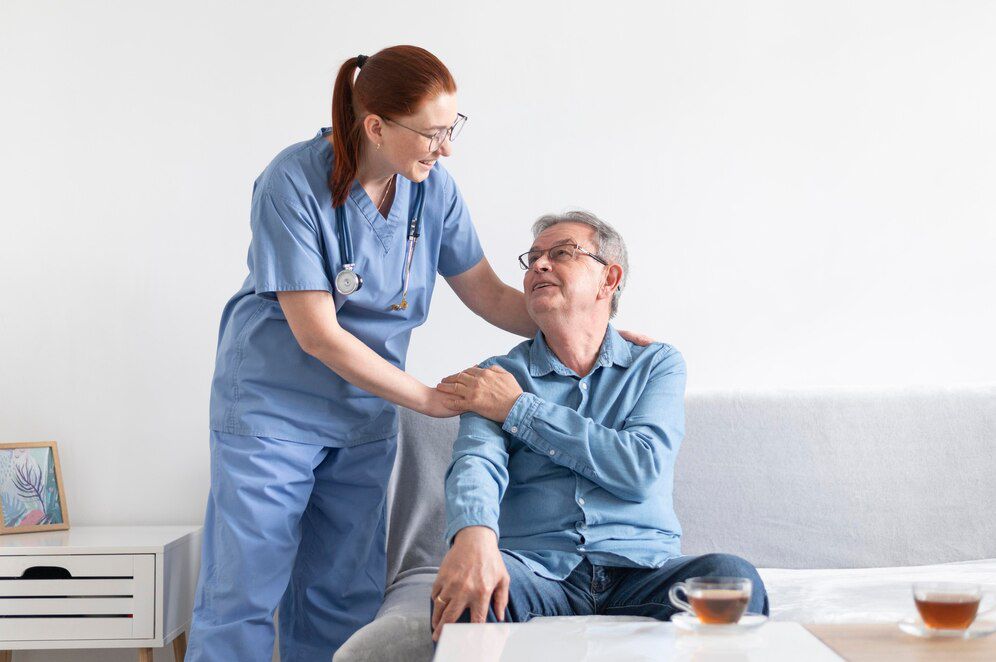Skilled nursing care provides seniors with medical services they may not receive at home. This may include wound care, injections, catheter care, and monitoring of vital signs.
Additionally, skilled nursing facilities (also known as nursing homes) often provide a variety of engaging, uplifting social programming for residents.
Specialized Therapy
Many seniors require specialty therapy to address chronic health conditions and help them regain their strength and independence. For instance, wound care specialists use specialized dressings and treatment plans to improve healing and prevent complications.
Through therapeutic exercises and techniques, physical and occupational treatments assist senior citizens in regaining their strength and mobility, while speech therapy treats communication problems and swallowing disorders. Additionally, skilled nursing professionals manage chronic medical conditions such as diabetes and heart disease, administer medications, and conduct regular health assessments to help seniors maintain optimum wellness.
Round-the-clock skilled nursing allows seniors to spend time surrounded by physicians, nurses, and professional caregivers rather than alone at home. This allows them to form new relationships, engage in fun activities, and forge meaningful friendships.
24-Hour Medical Care
Seniors who deal with sudden health changes or severe injuries need around-the-clock medical care and supervision. Skilled nursing homes are equipped with emergency medical centers and surveillance systems to ensure the safety of their residents.
Moreover, they have access to nurses who can manage pain medications and monitor seniors’ condition. These professionals will work closely with physicians to develop individualized pain management strategies that reduce discomfort.
They will also be on hand to answer any questions and concerns. Furthermore, skilled nursing facilities provide uplifting social programming that can help keep seniors engaged and healthy. These activities can help ease the transition back to living at home.
Mobility Assistance
Whether seniors have chronic diseases like diabetes or hypertension or recovering from surgery or a severe illness, skilled nursing professionals can help them manage their health conditions. They’ll administer medications, monitor vital signs, and conduct regular health assessments to identify changes quickly.
Sudden health changes can be overwhelming for seniors, especially after a debilitating illness or injury, and isolation can worsen the situation. Thankfully, round-the-clock skilled nursing facilities can provide an environment where physicians and registered nurses constantly surround seniors.
Plus, many skilled nursing communities offer uplifting social programming specifically designed for their residents’ levels of mobility. This has been proven to improve both physical and mental health significantly.
Respite Care
Caring for a senior loved one can be emotionally and physically exhausting. Without respite care, family caregivers may start to develop resentment and burnout. This is why finding a service that offers you the time and space you need is essential.
In-home respite care allows a professional to come into your home to assist with daily activities for several hours or over an extended period. It’s possible to have respite care services provided by home care agencies, nursing and assisted living facilities, or individual caregivers.
Skilled nursing facilities provide first-class care, round-the-clock, scheduled assistance, and immediate emergency medical care. Standard caregivers are also employed, including registered nurses, licensed practical nurses, and certified nursing assistants. Additionally, in-facility physicians specializing in gerontology, internal medicine, podiatry, optometry, and dentistry are frequently on-site to manage medical issues.
Socialization
The comfort of round-the-clock skilled nursing is a welcome relief for seniors experiencing a sudden health change or recovering from a debilitating injury or illness. Unlike at home, where seniors may feel isolated and forgotten, in skilled care, they are surrounded by physicians, registered nurses, and professional caregivers who can address their medical needs day or night. Additionally, many communities with skilled nursing care provide uplifting social programming designed to accommodate each resident’s level of mobility. This interaction is exceptionally beneficial for seniors’ mental and physical well-being.
